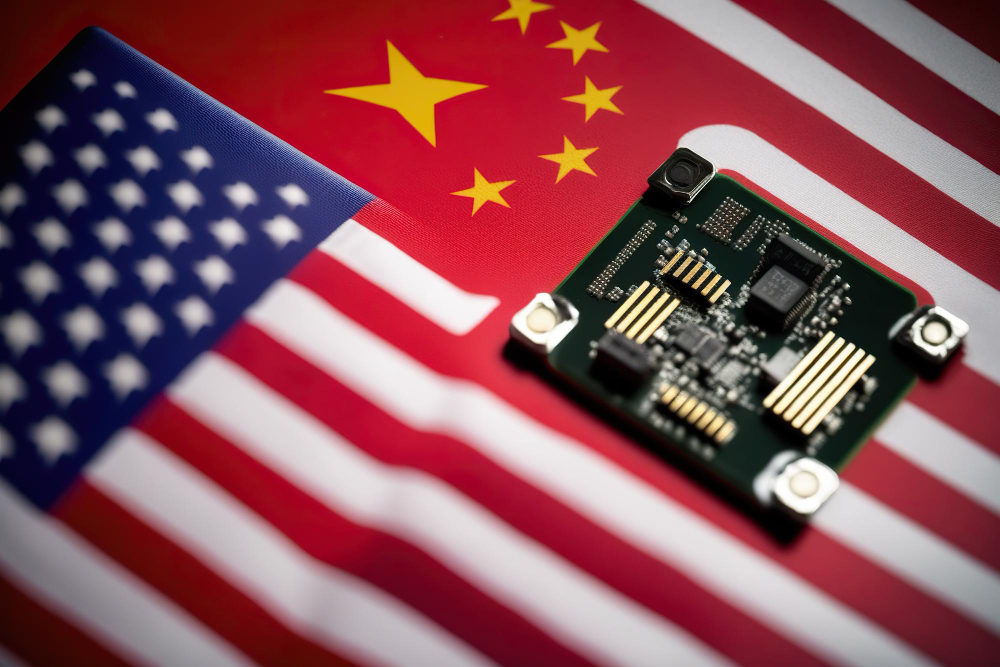The US wants Europe to adopt stronger limits on high-tech goods trade with China. In response, the EU should insist the US stick with de-risking, not decoupling, and demand greater transatlantic economic co-operation.
US leaders frequently describe America’s rules on trade with China as imposing a “small yard with a high fence”. Rather than decoupling the US and Chinese economies, Washington says it is only interested in stopping exports to China for a limited number of sensitive goods. Washington is, however, steadily expanding the size of the yard – and the fence is increasingly entangling European firms including, most recently, German companies Zeiss and Trumpf. To protect its interests, the EU should adopt the recent recommendations of former Italian prime minister Enrico Letta to develop a single European approach to economic security – and pressure Washington to keep its yard small.
Take advanced computer chips, and the machinery to build them. Fearful of China’s potential uses of AI for advanced weaponry, Biden abandoned Washington’s previous doctrine of allowing China to develop its chip-making prowess as long as it stayed several generations behind the cutting edge. Now, the US wants to limit China’s chip-making development as far as possible.
Washington’s new strategy inevitably draws in its allies. The US leads the world in chip design and chip-making software tools. But enforcing export controls on these types of intangible assets is difficult. Countries such as Japan, Taiwan and the Netherlands have stronger roles in the physical parts of the chip-making supply chain, where exports are easier to monitor – and this is where the US has turned its attention. The US could choose to apply export controls to European firms in the chip supply chain, since these firms rely on US intellectual property: but the US fears that if it took such a unilateral approach, European chip-making firms might respond by eliminating US intellectual property and other inputs from their supply chains so they become immune to US sanctions. The co-operation of European governments is therefore essential. The US has already persuaded the Netherlands to control exports by Dutch firm ASML, which produces the world’s most advanced machines used to ‘print’ circuits onto wafers, preventing those machines being sent to China without a government-issued licence. In 2019, the Dutch imposed licensing requirements covering ASML’s most advanced machines. In 2023, the US persuaded the Dutch (and the Japanese) to extend those controls to a wider range of chip-making machines. Now, to the dismay of ASML and the Dutch government, the US wants to constrain ASML staff from providing some types of maintenance for machines already sold to Chinese customers – services which are crucial given how complex and sensitive the machines are.
Countries such as Japan, Taiwan and the Netherlands have strong roles in the physical parts of the chip-making supply chain, where exports are easier to monitor – and this is where the US has turned its attention.
Chinese retaliation against chip-related export controls has so far been limited – for example, Beijing has imposed export licensing requirements on rare earths used in electronics, particularly gallium and germanium. This has been a relatively mild response – suggesting that China is not keen to see further escalation, despite its role as the dominant supplier of many raw materials on which the West is dependent. Instead, knowing its reliance on Western chip-making technology is a vulnerability, China has been spending vast sums to develop its own chip-making supply chains. If China achieves self-sufficiency, its willingness to retaliate against export controls imposed by the US and its allies might increase significantly.
However, China has had mixed success in mastering cutting-edge chip-making, because it is incredibly complex not just in terms of technology but also logistically. Rather than expanding its empire by bringing as much of its supply chain in-house as possible, for example, ASML acts as an ‘orchestrator’ for approximately 5,000 direct suppliers, which often provide highly specialised parts developed specifically for ASML and for which the firm has no realistic alternative supplier. China cannot simply replace ASML’s machines with its own because it cannot rebuild the entire ASML supply chain at once. Instead, an intermediate step for Chinese chip machine producers like SMIC would be to buy inputs directly from ASML’s suppliers. This risk has drawn Washington’s attention further down the value chain, to important ASML suppliers like German manufacturing firms Zeiss and Trumpf, and to German firms like BASF whose chemicals are used in all types of chip-making, not just high-end production. Such export controls are unlikely to dent China’s ambition to indigenise the technology now that Beijing has seen it is vulnerable regardless, but they might slow it. There seem to be other reasons for the US’s rapid expansion of its ‘small yard’ approach, however. For example, in response to curbs on its ability to make high-end chips, China has (predictably) repurposed its production facilities to pump out high volumes of cheaper but less sophisticated chips. This risks a global oversupply of lower-end chips which could put many Western-aligned chip-makers out of business – and might explain why the US is now targeting supplies like chemicals which are used in both high-end and low-end chip-making. The line between protecting national security and economic interests is becoming increasingly blurred.
European governments care much more about this line than the US. Like the Netherlands before it, Germany now seems reluctant to yield to the ever-escalating US requests, both because it wants to protect its firms, which make large sales in China and would be directly impacted by restrictions, and to avoid the broader risks of Chinese retaliation. For Zeiss and Trumpf, for example, China is an important market and production hub (see Table 1 below), and Germany still exports more to China as a share of its GDP than any other EU country – even though China is increasingly competing against Germany’s key industries.


